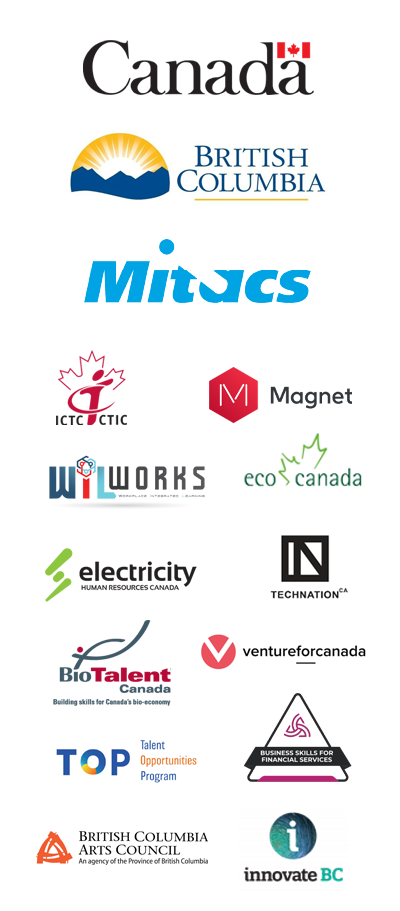The cost of hiring a student is a significant barrier to WIL involvement. Many employer funding opportunities are available to help organizations offset the costs.
Providing employers with a quality consultative service requires that the facilitators and coordinators understand specific eligibility requirements for each of the funding streams so they can close knowledge gaps with employers. While the 12 SWPP delivery partners have the same general eligibility parameters for the employer and student, there are many nuances related to what type of role they will approve for funding.
It is generally not enough to just send the employer contact the “Employer Guide to Funding” as they often have more questions. It gives you the chance to save your employer contact a great deal of time by knowing which funding program best matches the role they are looking to fill.
Keeping funding communications up to date and managing the regular changes and updates can be a challenge internally for WIL staff. Save a copy of this shareable, editable department-wide funding cheatsheet resource to manage funding content.
Funding Cheatsheet for WIL Teams #
Funding Resources #

Student Work Placement Program (SWPP) #
As part of the Government of Canada’s Student Work Placement Program (SWPP), a variety of funding opportunities are available for employers to hire students for the purposes of work-integrated learning. Canadian Employers are eligible to receive 75% wage coverage up to a maximum $7,500 until April 30, 2021. The 75% SWPP wage subsidy could possibly be extended past April 30th, 2021 or it may revert back to the pre-Covid amount of 50% coverage.
This funding is being administered by Employment and Social Development Canada (ESDC) through 12 delivery partners.
If you hire a student to work 35 hours a week at $17.00/hour for 12 weeks, normally, your total cost for wages will be $7,140.
But with SWPP, your total cost would be $1,785.
Employer Eligibility #
- A registered Canadian business or organization OR post-secondary education institution.
- Not a federal or provincial government organization.
- Financially capable to hire a student for a part- or full-time work term, pay them consistently and provide a meaningful work experience.
- Has less than 500 employees.
Student Eligibility #
- A Canadian Citizen, permanent resident or a protected person defined by the Immigration and Refugee Protection Act.
- Registered as a full-time student in a post-secondary institution program.
- Not an international student requiring (or on) a work permit.
- Not an immediate family member of the employer.
Important Updates: SWPP funding has become temporarily more flexible. #
In response to the COVID-19 pandemic, the Government of Canada has made temporary changes to the Student Work Placement Program (SWPP) to make accessing funding easier, provide you with more flexibility and allow you to hire more students! These changes will be valid until April 30, 2021.
If you didn’t qualify for funding before, you should consider it now! You may qualify for up to 75% in wage subsidies (to a max. of $7500) per co-op student you hire.
You may also consider using SWPP to hire more co-op students to assist with new projects and changes due to COVID-19. As an example, accessing funding through SWPP may provide you with the financial flexibility to hire four co-op students with the budget normally required for one.
SWPP eligibility changes (valid until April 30, 2021):
- Shortened work terms (8 – 16 weeks in duration) may now be eligible for SWPP funding.
- Co-op students can work from home.
- Post-secondary institutions now qualify for SWPP funding as long as the experience is a quality work-integrated learning opportunity that’s linked to the student’s program of study and career goals. This also applies to research positions.
- “Net new” hire restrictions have been removed. All co-op students are now considered for funding (not just new roles or more students hired compared to the previous year).
SWPP Delivery Partners #
BC Funding Programs #

Employers hiring students for WIL can receive grants to subsidize wages through the Innovate BC’s Tech Grants program, and the Innovator Skills Initiative Grant program. The BC Arts Council’s Co-op Placement Program is also available for arts and cultural organizations in BC.
Mitacs Business Strategy Internship Program #

The CC-BSI program will award eligible students $10,000 ($5,000 of which is contributed by the participating organization) of funding to undertake a 4-month internship with businesses and not-for-profit organizations.
Camosun Cooperative Education and Career Services (CECS), in partnership with Mitacs is excited to launch the Mitacs Business Strategy Internship program. The program enables Camosun College students from any program to work with businesses and not-for-profit organizations, applying the theories they’ve learned in school to real-world situations. Internships will be structured to support organizations that need additional assistance in modifying their business operations to adapt to the new economic reality.
Employer Eligibility #
- Willing to contribute $5000 towards each internship grant.
- Businesses, not-for-profit organizations, municipalities and hospitals.
- Any private organization with full-time employees.
- Any registered charity or not-for-profit organization.
Student Eligibility #
- Be a registered Camosun College student.
- Domestic and international students are eligible.
- Student can be from any academic discipline.

